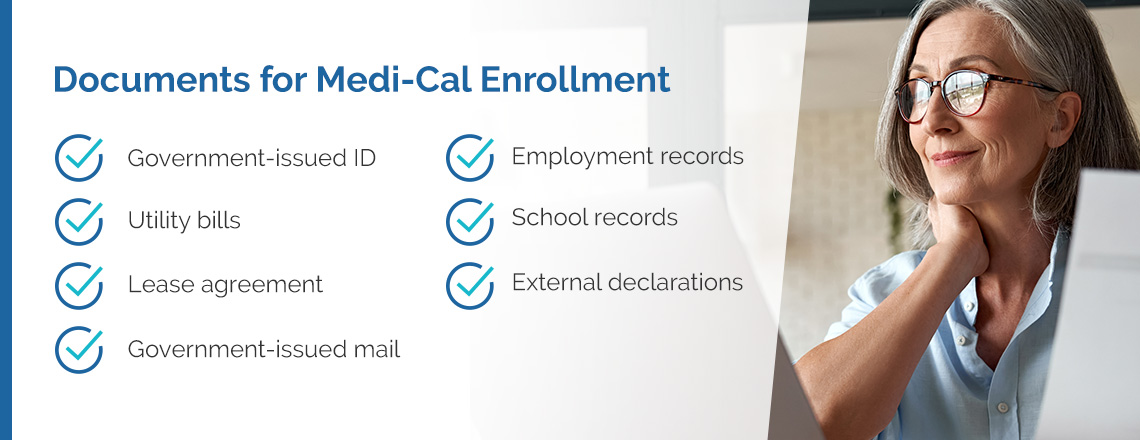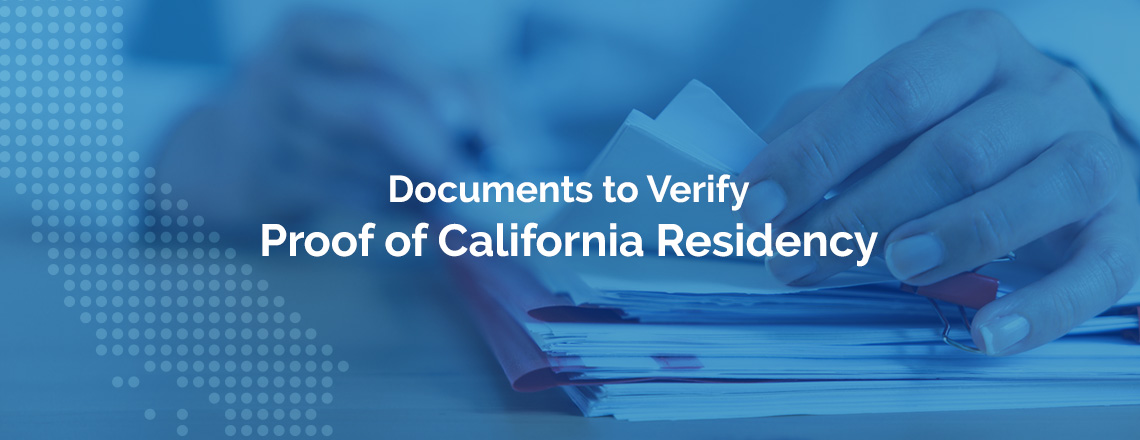Proof of California Residency
Documents to Verify Proof of California Residency
If you are applying for Medi-Cal, California’s Medicaid program, understanding the requirements for proof of residency in California can help you avoid unnecessary delays or denials. Whether you are new to the Golden State or have lived here for years, proving your residency is crucial in accessing this vital health care assistance.
Proving your residency ensures that Medi-Cal resources are allocated to those who live here and intend to stay. However, this requirement can feel overwhelming if you are unsure about which documents to provide. Many applicants experience delays simply because they do not understand what is required or assume their situation disqualifies them. We are here to clarify this point for you.
California Residency Requirements
To qualify for Medi-Cal coverage, you must demonstrate that you are a resident of California. Residency means that you live in the state and intend to stay here permanently or indefinitely. There is no minimum amount of time you need to have lived in the state to apply, but you must provide proof that California is your current home and will be for the foreseeable future. Also, ensure the documents are dated within the last 90 days, as old records can delay processing.
Documents for Medi-Cal Enrollment

Getting proof of residency can be challenging if you recently moved to California or do not have a fixed address for whatever reason. The good news is that the state accepts various documents to establish your proof of residency, including:
- Government-issued ID: Your California driver’s license or state ID card with your current address can serve as proof of residency.
- Utility bills: Recent utility bills for water, internet or electricity that are in your name and show a California address are strong evidence of residency.
- Lease agreement: A signed lease or rental agreement with your name and a California address is excellent proof of residency.
- Government-issued mail: Letters from federal, state or local government agencies addressed to you in California also work. These include tax documents, a notice from the Department of Motor Vehicles (DMV) or a jury duty summons.
- Employment records: Pay stubs or an employment offer letter with your California address can help.
- School records: If you or your child are enrolled in a local school, enrollment forms or a letter from the school can establish your residency.
- External declarations: If you live with someone and have no documents in your name, they can provide a signed letter or affidavit verifying your residency.
Proof of Social Security Number
When applying for Medi-Cal or any other form of health care coverage in California, you must also verify your Social Security Number (SSN). This step confirms your identity and allows the authorities to verify your income information with government records. Acceptable proof of SSN includes:
- Your Social Security card.
- W-2 or 1099 tax forms.
- A pay stub with your full Social Security number.
Acceptable Identity Documents
In addition to proof of residency, Medi-Cal and similar entities require proof of identity to confirm that your application matches your legal records. Documents for Medi-Cal that are acceptable for identity verification include:
- Your U.S. passport or passport card.
- Your Permanent Resident or Green Card.
- Your valid foreign passport stamped with “Processed for I-551”.
- Your California driver’s license or state-issued ID card.
- Your Certificate of Naturalization or U.S. Citizenship.
- Your Valid Employment Authorization Document (EAD) Card (I-766) or EAD Card with Notice of Action (I-797 C).
- Your birth certificate, which is often used for minors.
- Your documents reflecting Temporary Protected Status (TPS) benefit eligibility.
After Submitting Your Application
When you submit your application, keep an eye on your mailbox or emails. You will receive a confirmation notice that includes a summary of your application, contact information for your local Medi-Cal office and an estimated timeline for processing. You may also be asked to provide additional documents or clarify some information. Being prepared to respond quickly can prevent delays in receiving your health care coverage.
When your application is processed, you receive a notice of action that details your eligibility status, programs or services you qualify for and the steps to take if you disagree with the decision.
Frequently Asked Questions
For many people, gathering the right documents to verify residency for health care coverage that falls under the Affordable Care Act (ACA) can feel confusing. To simplify the process, here are some frequently asked questions to guide you through this important step:
What if I Don’t Have a Fixed Address?
You can still qualify for Medi-Cal if you don’t have a fixed address. Submit a letter from a nonprofit organization, a shelter or an affidavit from someone you are staying with, as Med-Cal prioritizes accessibility, even for those experiencing homelessness. Ensure that you provide a document showing the person’s address, like a utility bill or lease agreement, in addition to the affidavit.
What if My Documents Show a Different Address?
Make sure all your documents reflect your current address. If your address has recently changed, update your records with your landlord, utility provider or the DMV before submitting your Medi-Cal application.
Do I Need Proof of Citizenship?
Medi-Cal requires proof of legal status, like a U.S. passport, Green Card or other approved immigration documents. However, emergency and pregnancy-related Medi-Cal benefits are available regardless of immigration status.
Do I Need to Submit Physical Copies?
While original documents are not required, you must submit clear, legible copies, whether they are physical or digital. Ensure that scanned or photographed documents are high-quality and include all the necessary details, such as dates and official letterheads.
How Can I Ensure a Smooth Application Process?
Gather all possible proof of residence before you apply for Medi-Cal to avoid any back-and-forth requests for additional information. If you are unsure or struggling, contact Health for California for help with your application. You can also explain your situation, as Medi-Cal evaluators are trained to consider unique circumstances.
Let Health for California Find Your Health Care
Providing accurate and valid documents to verify your California residency proof is a vital step in the health care coverage application process. These documents help confirm that you meet the program’s requirements and ensure that resources are allocated to those who truly need them. Whether you are submitting a lease agreement, utility bills or an affidavit from someone you live with, attention to detail can make a significant difference in avoiding delays or denials.
By understanding residency requirements and gathering the right documents, you can streamline your Medi-Cal or another health insurance program application and access the necessary health care services. For personalized assistance, contact Health for California today. We can help you get a quote to find affordable, high-quality health care, including medical, dental, mental health and long-term services. Get your free quote today.

